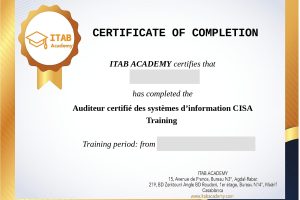Navigating DevOps Certification: Choosing the Right Path for Success
In the fast-paced world of software development and IT operations, DevOps has emerged as a transformative approach to streamline processes, foster collaboration, and accelerate innovation. DevOps certifications validate professionals’ expertise in implementing DevOps practices and methodologies, making them highly sought-after in today’s job market. This guide aims to provide insights and considerations to help you navigate the landscape of DevOps certification and choose the right path to advance your career and excel in the field of DevOps.
**1. Understand Your DevOps Goals and Objectives**
Before diving into DevOps certification options, take the time to clarify your goals and objectives. Consider the following questions:
– What specific aspects of DevOps am I interested in (e.g., automation, continuous integration/continuous deployment, infrastructure as code)?
– Do I want to specialize in a particular tool or platform within the DevOps ecosystem?
– How do I envision leveraging DevOps certification to enhance my career prospects or job performance?
Understanding your goals will guide you in selecting the most relevant certification path that aligns with your aspirations and professional development needs.
**2. Research DevOps Certification Options**
Once you’ve defined your goals, research the various DevOps certification options available. Consider factors such as:
– Certification Providers: Explore certifications offered by reputable organizations, such as industry associations, training providers, or technology vendors.
– Certification Levels: Determine if the certification program offers different levels (e.g., Foundation, Practitioner, Expert) to cater to varying skill levels and experience.
– Curriculum and Content: Review the topics covered in the certification program to ensure they align with your learning objectives and areas of interest.
– Delivery Format: Consider whether the certification is available through self-paced online courses, instructor-led training, or a combination of both.
– Prerequisites and Requirements: Check the prerequisites and requirements for each certification to ensure you meet the eligibility criteria.
**3. Assess Certification Relevance and Industry Recognition**
Evaluate the relevance and industry recognition of each DevOps certification. Consider factors such as:
– Industry Demand: Research the demand for DevOps professionals with specific certifications in your target job market or industry.
– Employer Preferences: Determine if employers in your field value or prioritize candidates with certain DevOps certifications.
– Market Trends: Stay informed about emerging trends and developments in the DevOps space to gauge the relevance of different certification programs.
Choosing a certification that is widely recognized and valued within the industry can enhance your credibility and marketability as a DevOps professional.
**4. Consider Hands-On Experience and Practical Skills**
Look for DevOps certification programs that emphasize hands-on experience and practical skills development. Consider factors such as:
– Lab Exercises and Projects: Check if the certification program includes hands-on lab exercises, case studies, or real-world projects to apply theoretical concepts in practical scenarios.
– Tool Proficiency: Assess if the certification covers popular DevOps tools and technologies, and provides opportunities to gain proficiency in tool usage through practical exercises.
– Collaboration and Teamwork: Consider certifications that promote collaboration and teamwork, reflecting the collaborative nature of DevOps culture and practices.
Practical experience is crucial for mastering DevOps principles and preparing for real-world challenges in software development and IT operations.
**5. Evaluate Career Benefits and ROI**
Lastly, evaluate the potential career benefits and return on investment (ROI) associated with obtaining the DevOps certification. Consider factors such as:
– Career Advancement: Assess how the certification will position you for career advancement opportunities, promotions, or transitions into leadership roles.
– Salary Increase: Research the impact of DevOps certification on earning potential and salary prospects in your industry or geographic location.
– Job Opportunities: Determine if the certification will open doors to new job opportunities or roles that align with your career aspirations.
Choosing a DevOps certification with strong career benefits and ROI can provide long-term value and contribute to your professional growth and success in the field of DevOps.
**Conclusion**
DevOps certification can serve as a valuable asset in your career journey, empowering you with the knowledge, skills, and credentials to thrive in the fast-paced world of software development and IT operations. By understanding your goals, researching certification options, assessing relevance and industry recognition, considering hands-on experience and practical skills, and evaluating career benefits and ROI, you can choose the right DevOps certification path that aligns with your aspirations and sets you on the path to success in the exciting field of DevOps. Remember that certification is just the beginning of your DevOps journey, and ongoing learning and professional development will be key to staying current and relevant in this rapidly evolving domain.




